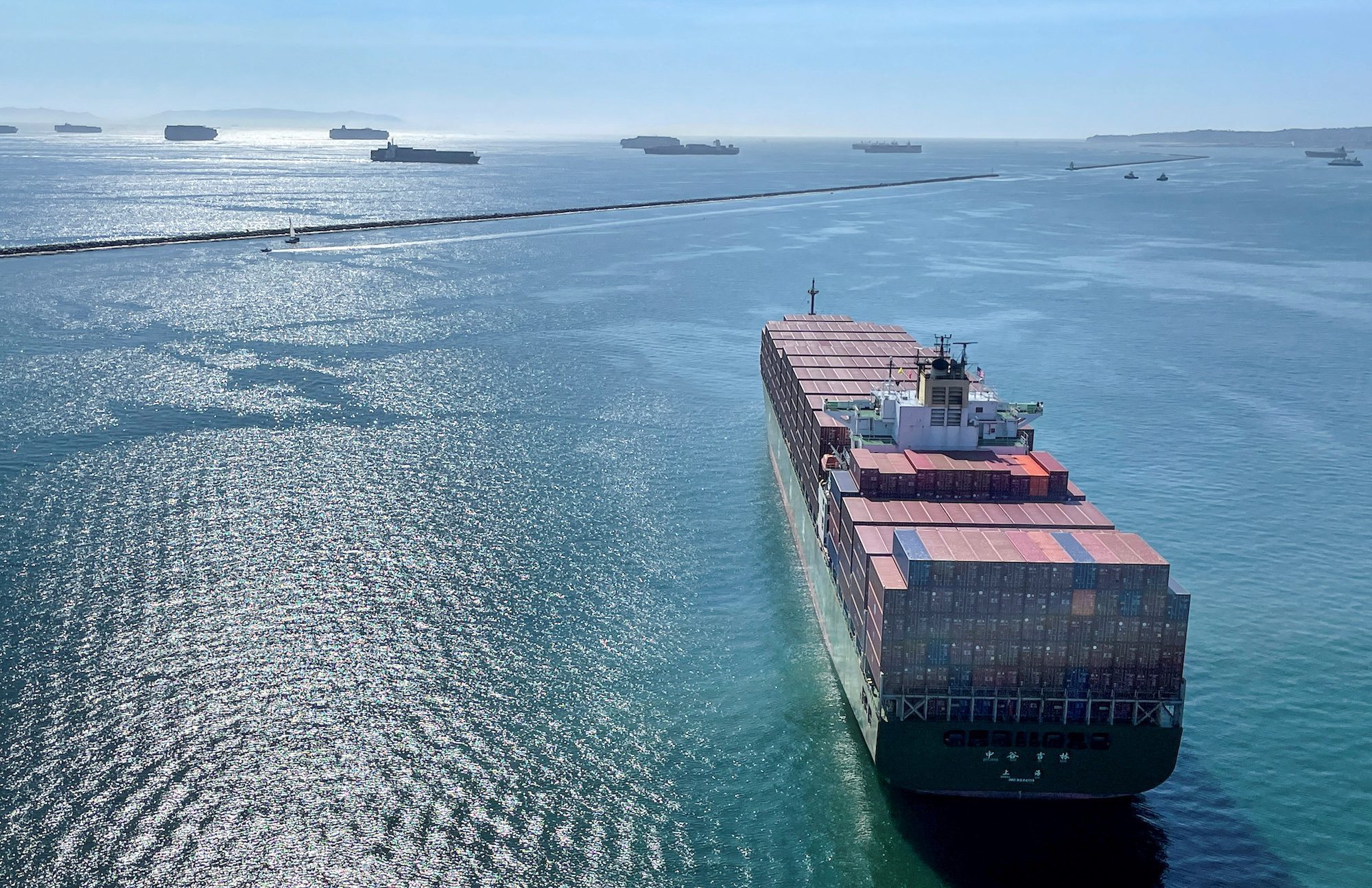The West’s Squeeze on Russian Tankers Gets Tighter
By Julian Lee (Bloomberg) — Another week, another gentle turning up of the heat by Group of Seven nations on the fleet of tankers moving Russian petroleum around the world, writes...


FILE PHOTO: Container ships wait off the coast of the congested Ports of Los Angeles and Long Beach in Long Beach, California, U.S., October 1, 2021. REUTERS/ Alan Devall/File Photo
By Barry Parker (gCaptain) –
The February 2023 Hellenic American / Norwegian American conference (“HACC / NACC”, referring to the two Chambers of Commerce who organized the event) included a session on an important topic that has retreated from the news headlines, but is still of vital importance to shipping industry participants.
Indeed, moderator John Stratakis framed the Supply Chain panel with questions of how logistics is connected to Geopolitics (the overarching theme of the one day in person gathering). The remarks of panel member Peter Tirschwell (involved in maritime journalism and heads up the very important TPM event, the leading gathering for liner shipping and logistics participants) stood out on this panel. In response to a question from Stratakis, Tirschwell described the events of the last few years as “One big shock- unlike any that had been experienced previously….and, now, as quickly as it materialized- it vanished.”
He went on to opine that “Everything about the supply chain is largely back to normal,” but then asked the question about whether participants should think about building resilience into the system, saying that was a big discussion item, presumably to be a big topic at the end February TPM confab to be held at Long Beach, California. Later on, he said that ports still remain highly vulnerable to another surge (with backups at ports responsible for the havoc of 2021 into early 2022).
Another panel member, Clay Maitland (the Board Chairman of the Hellenic American Chamber Commerce, in addition to his “day job” running International Registries, managers of the Marshall Islands ship registry) offered another perspective, suggested that many shortages that occurred in the U.S. were artificial. Using the example of paper goods shortages, he suggested that the cause was “sheer human incompetence.”
Maitland highlighted the issues with grains and fertilizers, direct impacts of the Ukraine war (rather than the pandemic), with deleterious impacts on the world’s food supplies.
The subject of diversifying sources of goods (notably away from China, in line with the conference theme of geopolitics) and re-shoring (bringing manufacturing back to the United States) also came up, with Tirschwell saying that: “China’s share of U.S. container imports has been slowly declining over time… that process of diversification [to other Asian producers] has been underway for some time, driven largely by cost.”
Picking up the conference focus, Tirschwell said: “What had not been the case were political considerations.” Major cargo shippers “looking at China from the point of geopolitical risk- that’s entirely new.”
Tirschwell added that this year’s TPM event will include a geopolitical expert, for the first time ever, who would talk about risks, notably vis a vis Taiwan. Interestingly, HACC NACC’s event took place during the same week as the first revelations of the Chinese balloon were emerging.
The subject of Federal Maritime Commission (FMC) stepped up activity also came up, with Tirschwell noting that big importers (he mentioned Amazon, Target and Walmart), with their market clout, ”are able to make agreements with carriers to leave their containers at terminals for weeks at a time.”
From the audience, questioner Matt Thomas (a partner at law firm Blank Rome, based near Capitol Hill in Washington, D.C.) noted that U.S. agricultural interests, seeking empty containers for exports, had driven U.S. regulatory reforms, which resulted in the Ocean Shipping Reform Act of 2022 (OSRA 2022), and that structural issues (such as container storage constraints), had not been addressed. Panelist Peter Tirschwell, addressing the question of “What comes next?,” said that the issues bringing about OSRA 2022 were “Unique to what was happening during COVID- they don’t happen in a different market, and they are not happening now.”
In his words, carriers optimizing their business (shipping empties back to Asia to take advantage of historically high rates) “created a political problem…that led to the shipping act being re-written.”
Join the gCaptain Club for curated content, insider opinions, and vibrant community discussions.


Join the 107,346 members that receive our newsletter.
Have a news tip? Let us know.
Access exclusive insights, engage in vibrant discussions, and gain perspectives from our CEO.
Sign Up




Maritime and offshore news trusted by our 107,346 members delivered daily straight to your inbox.



Essential news coupled with the finest maritime content sourced from across the globe.
Sign Up